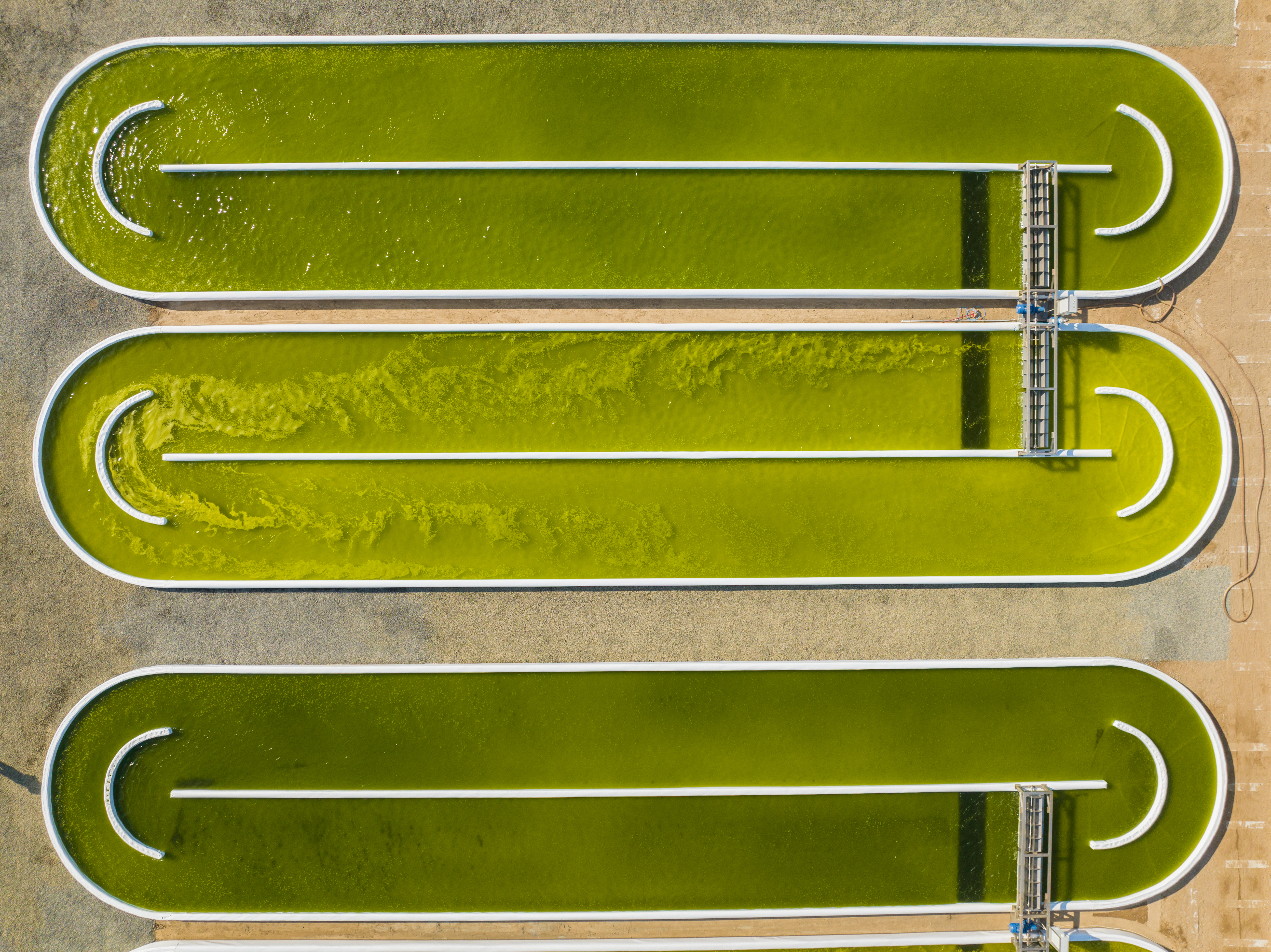
Overview
The environmental consultancy arm of KAUST — KAUST Beacon Development — in a joint venture with the Ministry of Environment, Water, and Agriculture (MEWA), is currently developing a project entitled “Development of Algal Biotechnology in the Kingdom of Saudi Arabia” (DABKSA).
The project’s overarching goal is to support MEWA in establishing an algal biotechnology industry in the Kingdom using indigenous species of microalgae and macroalgae (seaweeds) to produce animal feed.
Aligned with Vision 2030, the Saudi Green Initiative and the Research, Development and Innovation Authority's national priority to ensure food security in the Kingdom, this project aims to establish an entirely in-Kingdom supply chain for producing animal feed using locally sourced raw materials.
DABKSA will be developed in 2 phases:
Phase I
Currently under development, this phase involves the building and commissioning of microalgae facilities spanning 1000 m² at KAUST. These facilities will produce microalgae biomass to be incorporated as the raw materials (proteins and lipids) for animal feed production (primarily for fish and poultry consumption). During this phase, the production numbers (tons of product per hectare of facility) of the experimental algae facilities will be calculated over one year of operation (TRL 6-8), providing documented data on algae productivity in the Kingdom. The information gathered in Phase 1 will allow for assessment of the life cycle and completion of a full economic feasibility study to provide proof of concept before advancing to Phase 2 (TRL 9) of the project.
Phase 2
Phase 2 comprises a key deliverable with two strategic initiatives:
The implementation of the Aquaculture Development Program (ADP) and the Development of Algal Biotechnology in the Kingdom of Saudi Arabia (DABKSA), under the Ministry of Environment, Water, and Agriculture (MEWA).
The primary objective of DABKSA is to supply locally sourced raw materials to produce animal feed, reducing the Kingdom’s reliance on imports and strengthening food security.
The primary objective of the ADP is to advance, improve, and enhance aquaculture activities in the Kingdom by exploring the economic potential of farming new local fish species and developing innovative technologies to support animal nutrition, particularly the selected finfish promoted to be incorporated into the aquaculture industry.
Spanning over 42,000 m² of cutting-edge facilities dedicated to applied marine research, the Phase 2 plant will be equipped with entirely locally manufactured materials and equipment, supported by a team of world-class researchers. The facility is specially designed to drive innovation by developing new technologies, processes, and products, while also providing hands-on training for the next generation of Saudi aquaculture and algae farming professionals and scientists.
The Phase 2 plant is fully aligned with KAUST’s new strategy and the Kingdom’s Vision 2030 and provides the cornerstone for the sustainable growth of Saudi Arabia’s aquaculture and algae industries. Through these state-of-the-art research units described in both phases, DABKSA and ADP are paving the way for the future of algal biotechnology and charting the aquaculture road map in Saudi Arabia.
KBD Algae
KBD Aquaculture

